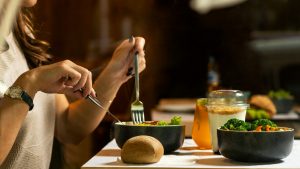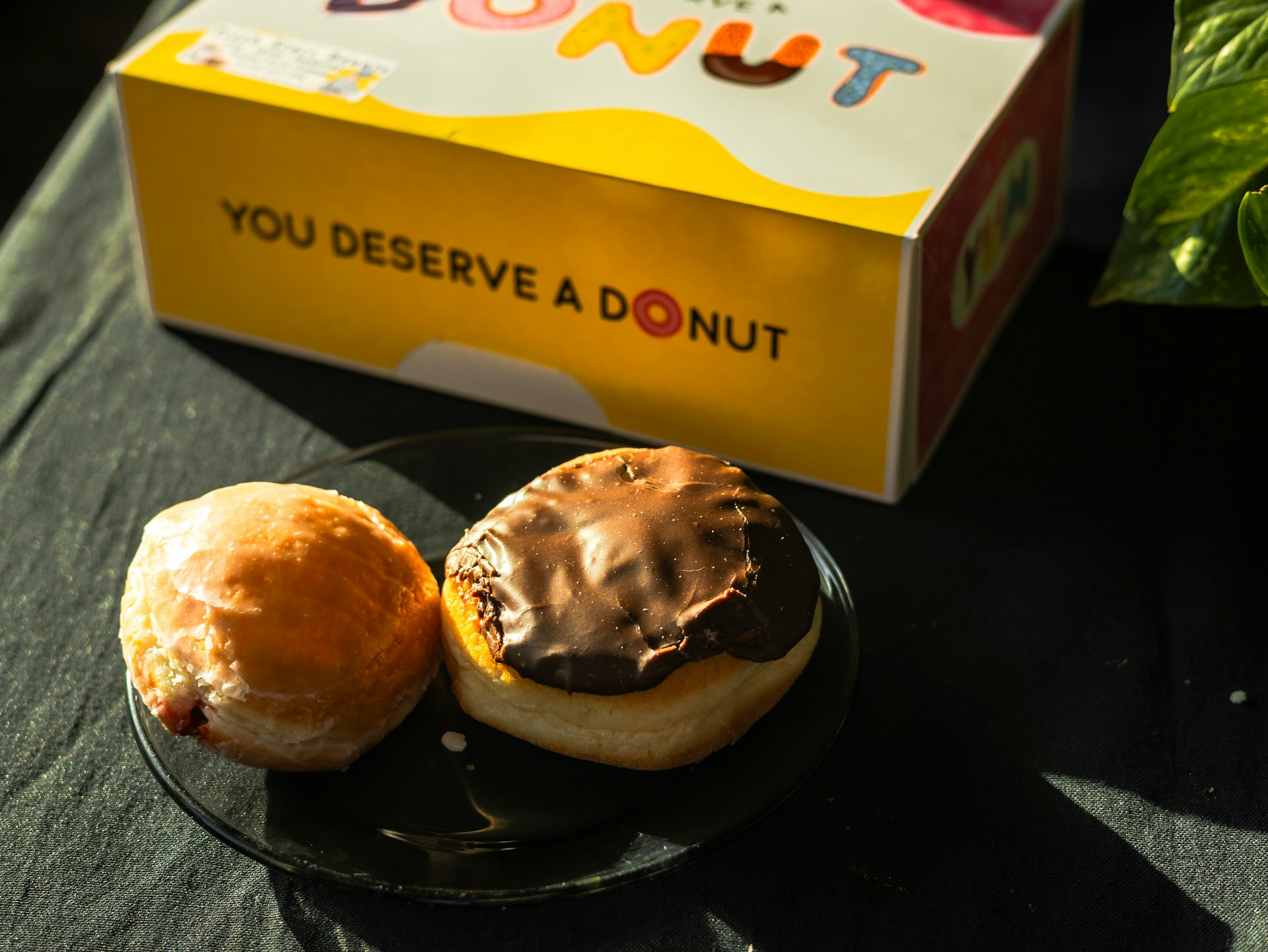It might come as a surprise, but emotional eating isn’t only tied to stress or sadness. There are times when life is great, and you’re celebrating something special, spending time with friends or family, or simply enjoying the moment, and often, food plays a big part.
Food has a way of connecting us to our feelings, whether we’re feeling down or on top of the world. When we’re happy, we also unconsciously turn to food to make the good feelings last longer or to enjoy the moment even more. Many times, we’re left wondering why we ate so much, especially if it happens often enough to notice.
So, why do we reach for food in an unhealthy way even when things are going well?
Let’s look at the connection between happiness and emotional eating, how it sneaks up on us, and what we can do to keep things in balance while still enjoying life’s happy moments.
Why Emotional Eating Isn’t Good, Even When We’re Happy
Emotional eating tied to happiness might not seem harmful, but it’s still possible for it to cause serious problems if we’re not careful. Eating because we’re feeling good does lead to overeating sometimes, especially when we focus on keeping the joy going instead of listening to our hunger. Also, the foods we enjoy more in these emotional moments, like sugary treats or fatty snacks, if eaten excessively, contribute to weight gain or other health concerns.
Relying on food in an unhealthy way when we’re happy has a way of distracting us from enjoying other ways of celebrating. Of course, eating in happy moments isn’t necessarily bad, but it’s important to find balance so that it doesn’t become a habit that replaces other rewarding experiences.
Positive emotions disrupt our eating habits without us even realizing it because when we’re happy, we’re more likely to have our guard down and be less focused on being mindful of what we’re doing.
Happy Moments When Emotional Eating Can Happen
Celebrations Birthdays, holidays, weddings, and family get-togethers come with a lot of food. That cheerful atmosphere makes us want to enjoy the treats that go along with the celebration.
 Rewarding achievements After completing something big, like finishing a project or hearing good news, we like to celebrate with food as a way to treat ourselves.
Rewarding achievements After completing something big, like finishing a project or hearing good news, we like to celebrate with food as a way to treat ourselves.
Nostalgia Sometimes, we eat foods that remind us of happy times too much, like a favorite childhood snack or a family recipe, just to relive those memories.
Sharing joy Eating together with loved ones often brings extra comfort and happiness. The food becomes part of the fun and connection.
Exciting times Whether it’s a movie night, a game night, or watching a big sports match, comfort foods and snacks can become a bigger part of the excitement than the actual event.
These situations are relatable and easy to overlook as forms of emotional eating. I mean, there’s nothing wrong with eating while celebrating, is there?
Well, it depends on a number of things.
The Difference Between Eating for the Occasion and Emotional Eating
It can be tricky to tell when you’re eating just because it’s part of the celebration versus when you’re eating because of how you’re feeling. Emotional eating is tied more to your personal feelings. For instance, if you eat dessert after a fun day simply to keep the good vibes going, even if you’re not actually hungry anymore.
One way to tell the difference is to check in with yourself about your food choices. If you’re reaching for comfort foods or going back for seconds when you’re already full, over and over, you might be eating emotionally.
A simple way to figure it out is to ask yourself whether you’re eating because you’re hungry or because you’re trying to keep the good feelings alive.
Staying mindful at celebrations doesn’t mean you can’t enjoy food, but you need to be intentional about what you eat.
How to Enjoy Food Without Overdoing It During Happy Occasions
- Always focus more on the people, music, or fun activities instead of just the food.
- Try small bites of everything rather than piling your plate with everything in sight.
- Bring a prop or hold onto something like a clutch, camera, or even a water bottle to keep you from mindlessly grabbing food while mingling.
- Eat a light, healthy snack before the event to curb extreme hunger so you are less likely to dive into the food table with abandon.
- Team up with a friend who shares your goals and use a discreet signal to keep each other in check.
- Observe others who eat slowly and lightly during happy occasions and mirror their behavior.
You can come up with many other mindful ideas of your own to remind you to enjoy the moment and food without going overboard.
If you’ve ever wondered why you still indulge in food even when you’re not sad or stressed, this is for you. Learning how to manage your emotions and eating habits in a healthy way takes time, and it’s not always easy to get over on your own.
There are resources on this site to help, including nutritionists and food therapists who can support you in finding a healthier balance. You don’t have to be sad to talk to a therapist; do it to stay healthy, too. Give us a call today.
“Eating Lite”, Courtesy of Farhad Ibrahimzade, Unsplash.com, CC0 License
-
Grace Mavindidze: Author
Grace Mavindidze is an experienced Journalist of close to two decades and a certified SEO specialist writer who enjoys traveling, meeting people from a broad cultural spectrum, as well as engaging people in topics that are informative, entertaining,...
DISCLAIMER: THIS ARTICLE DOES NOT PROVIDE MEDICAL ADVICE
Articles are intended for informational purposes only and do not constitute medical advice; the content is not intended to be a substitute for professional medical advice, diagnosis, or treatment. All opinions expressed by authors and quoted sources are their own and do not necessarily reflect the opinions of the editors, publishers or editorial boards of Stone Oak Christian Counseling. This website does not recommend or endorse any specific tests, physicians, products, procedures, opinions, or other information that may be mentioned on the Site. Reliance on any information provided by this website is solely at your own risk.





